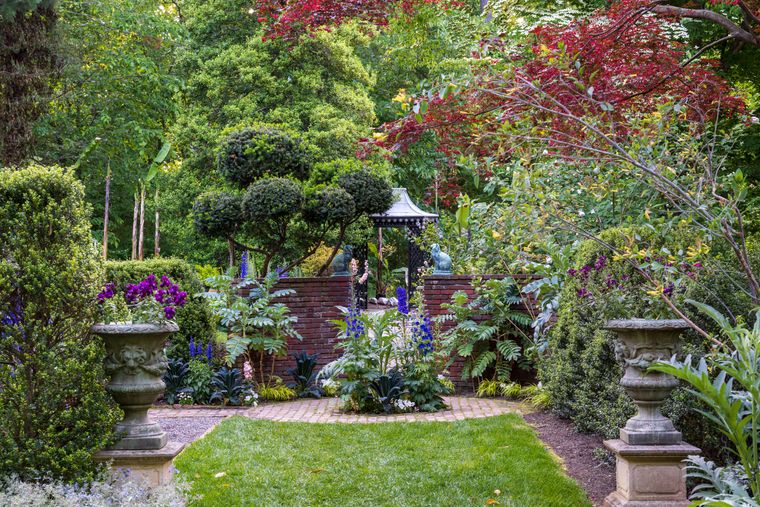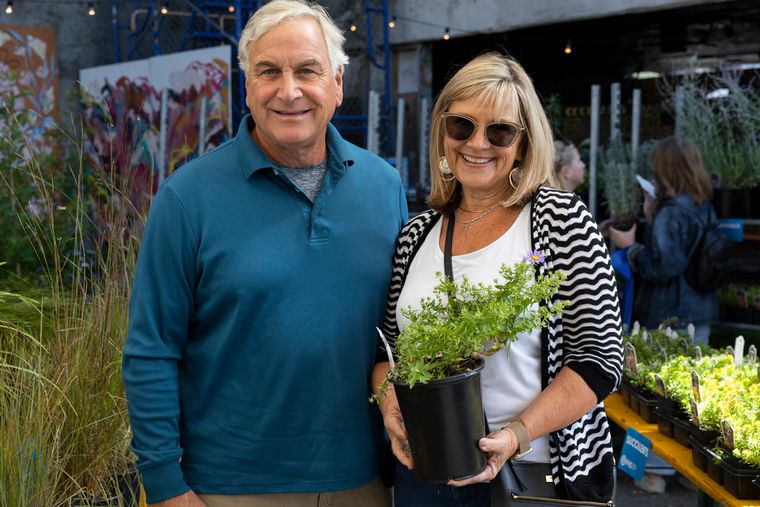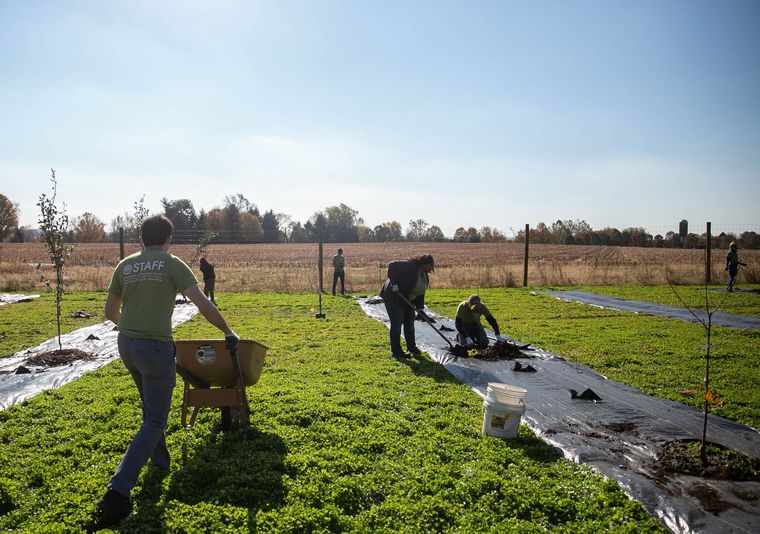



Grow Your Own Windowsill Herb Garden
gardening projects
plant care

By Marion McParland and Wendy Lam
For those who don’t like being cooped up inside watching your green thumbs turn pale, PHS suggests you try your hand at a windowsill herb garden. This activity is a wonderful way to quench your gardening desire, and grow fresh, flavorful, organic herbs to use in cooking. Sally McCabe, PHS Associate Director of Community Education, suggests growing an herb smorgasbord with these four, well-loved, versatile choices: basil, oregano, mint, and thyme.
A SupHERB Activity
Purchase herbs as seed packets or small plants. While starting from seed is less expensive, it will take several months until you are able to enjoy your herbs. To save time, start with small plants that you can purchase at your local garden center. Get six-inch deep pots with drainage to plant them individually. Select a potting mix of peat, sand, and perlite. “Don’t use soil from your yard or garden,” says McCabe. “It could contain soil-borne diseases and will compress over time, making drainage difficult.”
Basil — A Peppery Herb
Have you ever met anyone who doesn’t love basil? We haven’t! Perfect for beginners, basil is easy to grow indoors. Pinch off leaves as you like to add to your sauces, salads, or pizza. Basil prefers bright sunlight and heat, so find a southern or western window to catch the best morning or afternoon rays, and avoid drafts. One basil plant will last about a month. If you want to be sure to always have some at the ready, plant a new batch of seeds every couple of weeks.
Get to Know Oregano
Did you know that oregano is a member of the mint family? This hard-working herb is a must for Mexican, Italian, and Central American recipes. Oregano is grown like other mints, in medium to bright light. Don’t let the plant dry out — water when the soil is dry to the touch. Clip the stems and strip the leaves, then add to stews, soups, tomato sauces, and other recipes.
“Mint” to Be
Choose your flavor — spearmint, apple, peppermint, chocolate, orange, pineapple — there are many varieties. Spearmint is the most widely used for its pleasing scent and mild flavoring. An east-facing window in the spring will provide the right amount of light. Keep your plant moist, but not overly wet. When summer arrives, move your mint plants outside. Take note to not over-fertilize, as this will cause mint to lose its flavor.
It Takes Thyme
One of the easiest herbs to grow indoors, this perfect-for-beginners plant prefers to sit in a sunny window, facing south or west. Water every few days, but let the soil dry out between watering. Fertilize thyme with a weak solution of liquid seaweed, diluted in half, every two weeks. Cut back woody stems to encourage new growth. You can also try growing this herb hydroponically.
Let the Sunshine In
Sunlight is the number one necessity for growing healthy, happy herbs. South-facing windows have the brightest light and provide the most hours of sun. If you don’t have a sunny windowsill, don’t despair. “Most herbs will do best with 10 to 16 hours a day of supplemental lighting from grow lights or LED plant lights,” says McCabe.
As we wait for the warmer days of Spring to arrive, keep yourself, and your family busy with a windowsill herb garden. PHS believes that gardening with friends and family is the best way to teach the values, and benefits, of growing your own food. And while you’re enjoying a delicious meal together, you will be making memories.
Access more gardening ideas by signing up for our monthly newsletter.


